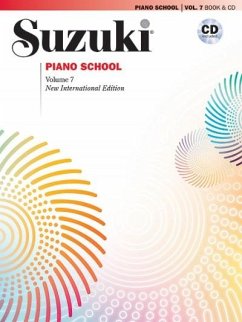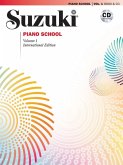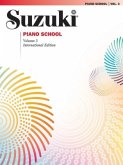The New International Edition of Suzuki Piano School, Volume 7, includes French, German and Spanish translations as well as a newly recorded CD performed by internationally renowned recording artist Seizo Azuma. Now the book and CD can be purchased together or separately. The contents have changed to include J. S. Bach's "Prelude and Fugue in D Major," Chopin's "Nocturne in C-sharp Minor," Debussy's "La fille aux cheveux de lin," and Bartók's 6 Romanian Folk Dances. Handel's "Prelude" and Paderewski's "Minuet" have been permanently removed. Titles: Sonata in A Major (Andante grazioso; Minuetto and Trio; Alla turca), K. 331 (300i) (W. A. Mozart) Prelude & Fugue in D Major, BWV 850, from The Well-Tempered Clavier, Book 1 (J. S. Bach) Nocturne in C-sharp Minor, Op. posthumous (Chopin) The Harmonious Blacksmith, from Suite No. 5 in E Major (Handel) La fille aux cheveux de lin, from Préludes, Book 1, L. 117:8 (Debussy) Romanian Folk Dances, Sz. 56 (1. Joc cu Bâta; 2. Brâul; 3. Peloc; 4. Buciumeana; 5. Poarga Româneasca; 6. Maruntelul) (Bartók).
Bitte wählen Sie Ihr Anliegen aus.
Rechnungen
Retourenschein anfordern
Bestellstatus
Storno








